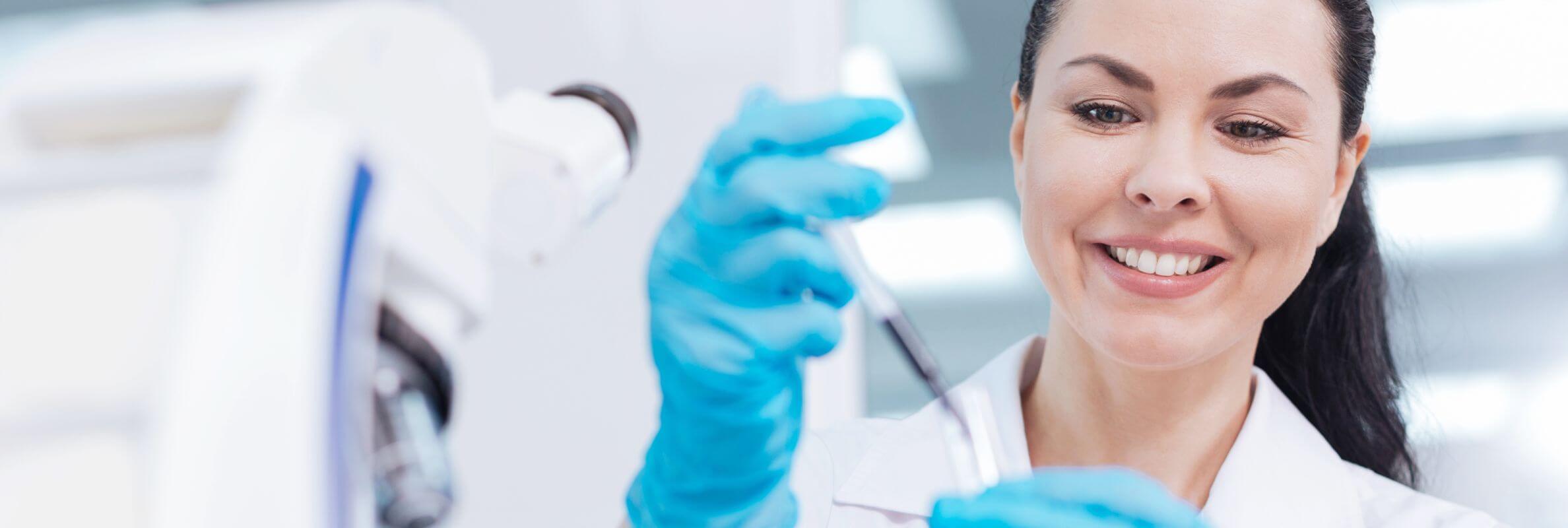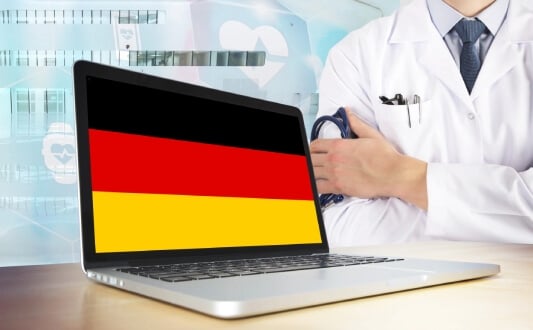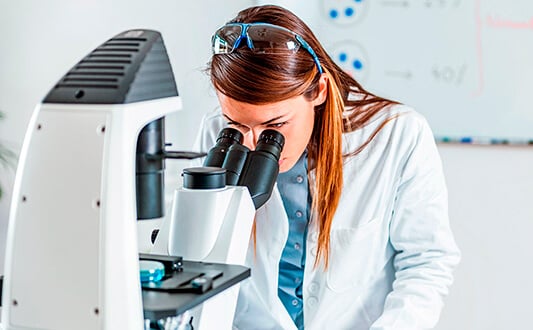Dendritic cell therapy for ulcerative colitis is an advanced approach focused on the individual characteristics of the patient’s body. This method is an innovative solution in the world of medicine and opens up new opportunities for those who are looking for effective ways to combat a chronic disease. Unlike standard treatments, dendritic cell therapy takes into account the unique genetic features of each person. Thus, doctors will be able to approach the restoration of your health with the maximum level of personalization.
Ulcerative colitis and possible causes of this condition
Ulcerative colitis is a chronic inflammatory disease that affects the rectum and other parts of the colon. According to a new study by Catherine Le Berre and co-authors published in The Lancet, this disease will affect about five million people worldwide by 2023. Unfortunately, these numbers still continue to grow.
The disease can seriously reduce a person's quality of life, leading to abdominal pain and bloody diarrhea. Although various treatment methods have been developed, including 5-aminosalicylic acid-containing drugs, biologically active substances, and Janus kinase inhibitors, their use does not lead to the desired result in 10-20% of patients. The world is therefore actively searching for new approaches to ulcerative colitis treatment.
As far as it has been established so far, the disease itself is associated with dysfunction of the immune system. The human body contains dendritic cells and macrophages, which play a key role in fighting infections. However, in patients with ulcerative colitis, these cells can perceive the intestinal tissues as a threat and attack them.
Cytokines play a key role in pathogenesis. These are molecules that help cells "communicate" with each other. Some of them stimulate inflammation, while others reduce its activity. In cases of ulcerative colitis, this system goes out of balance, leading to the development of chronic inflammation in the intestines.
The exact causes of the development of ulcerative colitis are not completely clear today. By understanding the pathogenesis of the disease, scientists and doctors hope to develop more targeted and effective treatments to help patients with ulcerative colitis return to their full lives.
One of the promising approaches to treating ulcerative colitis and preventing its exacerbations is dendritic cell therapy. This method is under active research and is used in the world's most advanced hospitals.
What are dendritic cells?
Dendritic cells are unique antigen-presenting cells that play a key role in triggering the immune response. They are able to capture, process, and "show" foreign antigens to T lymphocytes, the main cells of the immune system, thereby activating the immune system to recognize and destroy potential threats to the human body.
One of the main properties of dendritic cells is their ability to "train" other cells of the immune system. When dendritic cells encounter foreign agents, such as bacteria or viruses, they capture and process them. These cells are then sent to the lymph nodes, where they present antigens to T cells, which can destroy harmful agents.
Although dendritic cells make up a small percentage of all cells in the blood (about 0.3%), their influence on the immune system cannot be overestimated. They are found in almost all tissues, especially those that are in contact with the external environment, for example, in the skin and mucous membranes. Their importance for the functioning of the human immune system is so great that Dr. Ralph Steinman was awarded the Nobel Prize in Medicine in 2011 for his discovery and research of the functions of dendritic cells.
Dendritic cell therapy is most often used for cancer treatment. However, given the key role of dendritic cells in the immune system, they are being considered as a treatment for a number of other pathologies, including ulcerative colitis.
Dendritic cells (DСs) for ulcerative colitis treatment
Dendritic cell therapy is an innovative and currently largely experimental approach to ulcerative colitis treatment. The process includes the following several key steps:
- Dendritic cell harvesting. Immature dendritic cells are extracted from the patient's blood.
- Antigen preparation. In cases of ulcerative colitis, these may be antigens associated with the inflammatory process or specific pathogens that cause an inflammatory response.
- Stimulation and "training" of cells. Dendritic cells are cultured in the laboratory in contact with ulcerative colitis-associated antigens. At the same time, they "train" to recognize inflammatory agents and transmit information about them to other cells of the immune system.
- Additional activation. In some cases, the cells may be further stimulated to enhance their effectiveness before being repeatedly injected into the human body.
- Injection of dendritic cells into the human body. Modified DCs are injected back into the patient's blood.
After returning to the body, dendritic cells travel to the lymph nodes, where they activate T lymphocytes, "training" them to recognize and fight the inflammatory agents associated with ulcerative colitis. This stimulates the immune system to fight inflammation more actively and purposefully. This approach may reduce the severity of symptoms and slow down the progression of the disease.
Immunotherapy for ulcerative colitis in Germany
Germany is widely recognized in the medical community as one of the leading countries in the field of immunotherapy. Ulcerative colitis treatment here is based on the latest scientific advances and the highest standards of medical care.
If you are interested in treatment at clinics in Germany, a short plan of several steps will be helpful for you to organize the process:
- A treatment request. When you first contact us, please specify your diagnosis and, if possible, attach the results of your previous diagnostic tests.
- Conversation with a medical advisor. The doctor will study your medical history, ask clarifying questions, and help you choose an optimal treatment program.
- Arrival at the hospital and initial diagnosis. A leading German specialist will consult you. They will prescribe the necessary diagnostic tests, including colonoscopy, to assess your condition.
- Minimally invasive harvesting of immune cells. Under the supervision of medical personnel, a small amount of blood will be taken from you for further testing.
- Culturing cells in the laboratory. Your blood will be processed in a laboratory that meets high European standards. The purpose of this stage is to isolate and activate cells that play a key role in the functioning of the immune system.
- Infusion of activated cells. After the cells are treated, they will be repeatedly injected into your body to help your immune system fight inflammation caused by ulcerative colitis.
- Medical supervision. After the completion of the procedure, your condition will be monitored regularly to ensure the effectiveness of the therapy and to make adjustments if necessary.
Additional anti-inflammatory therapy may be used throughout the course of treatment. Research from leading German institutes has shown that the inflammation characteristic of ulcerative colitis can suppress the functioning of certain immune cells. Doctors can increase the effectiveness of treatment through the elimination of this inflammation.
When you choose Germany for ulcerative colitis treatment, you will have access to advanced treatment methods, highly qualified specialists, and a personalized approach at every stage of treatment.
Benefits of the treatment method for ulcerative colitis
Immunotherapy for ulcerative colitis treatment continues to demonstrate excellent results, especially when performed in advanced countries such as Germany. The results of the studies available today confirm that dendritic cell-based vaccination for ulcerative colitis could be a revolutionary approach in the fight against this disease.
If you want to undergo immunotherapy in Germany, you should pay attention to Booking Health. The company has been organizing treatment for foreign patients for more than 12 years and has been collaborating with the best hospitals in Germany specializing in ulcerative colitis treatment.
Below are the main advantages of cooperation with Booking Health:
- Selection of the most suitable medical center: the Booking Health specialists will help you choose the best clinics based on their achievements in conservative treatment and surgery, compliance with your needs, and patient reviews.
- Personal communication with doctors: even before treatment begins, you will have the opportunity to discuss all the details with your future attending physician.
- Cost savings: thanks to established partnerships with hospitals, the Booking Health company helps to find out prices in advance and significantly reduce the average cost of treatment in Germany due to the absence of taxes for foreign patients.
- Quality control: independent experts will ensure that all stages of diagnosis and therapy are carried out at the highest level.
- Personal coordinator: a personal medical coordinator will be in constant contact with you and will help resolve all organizational issues, from booking a hotel room to obtaining a visa.
When you choose Booking Health, you will provide yourself with access to the best treatment methods for ulcerative colitis, a comfortable stay in Germany, and medical support after the completion of your therapy.
Frequently Asked Questions about ulcerative colitis
Send request for treatmentDendritic cell therapy for ulcerative colitis costs approximately 20,000€ to 38,000€. This includes the laboratory cultivation of the cells, the administration of the vaccine and medical support. In Germany, this therapy combines effectiveness with high safety standards.
In German ulcerative colitis patients receive dendritic cell therapy only after careful evaluation. Treatments are individualized and administered under close supervision. Also dendritic cells are integrated with standard care to modulate the immune system.
See the interview for more information:
INNOVATIVE DENDRITIC CELL TREATMENT IN GERMANY – interview with Prof. Dr. med. Frank Gansauge
Authors:
This article was edited by medical experts, board-certified doctors Dr. Nadezhda Ivanisova, and Dr. Bohdan Mykhalniuk. For the treatment of the conditions referred to in the article, you must consult a doctor; the information in the article is not intended for self-medication!
Our editorial policy, which details our commitment to accuracy and transparency, is available here. Click this link to review our policies.
Sources:
Read:
Article menu:
Don't know where to start?
Contact Booking Health






